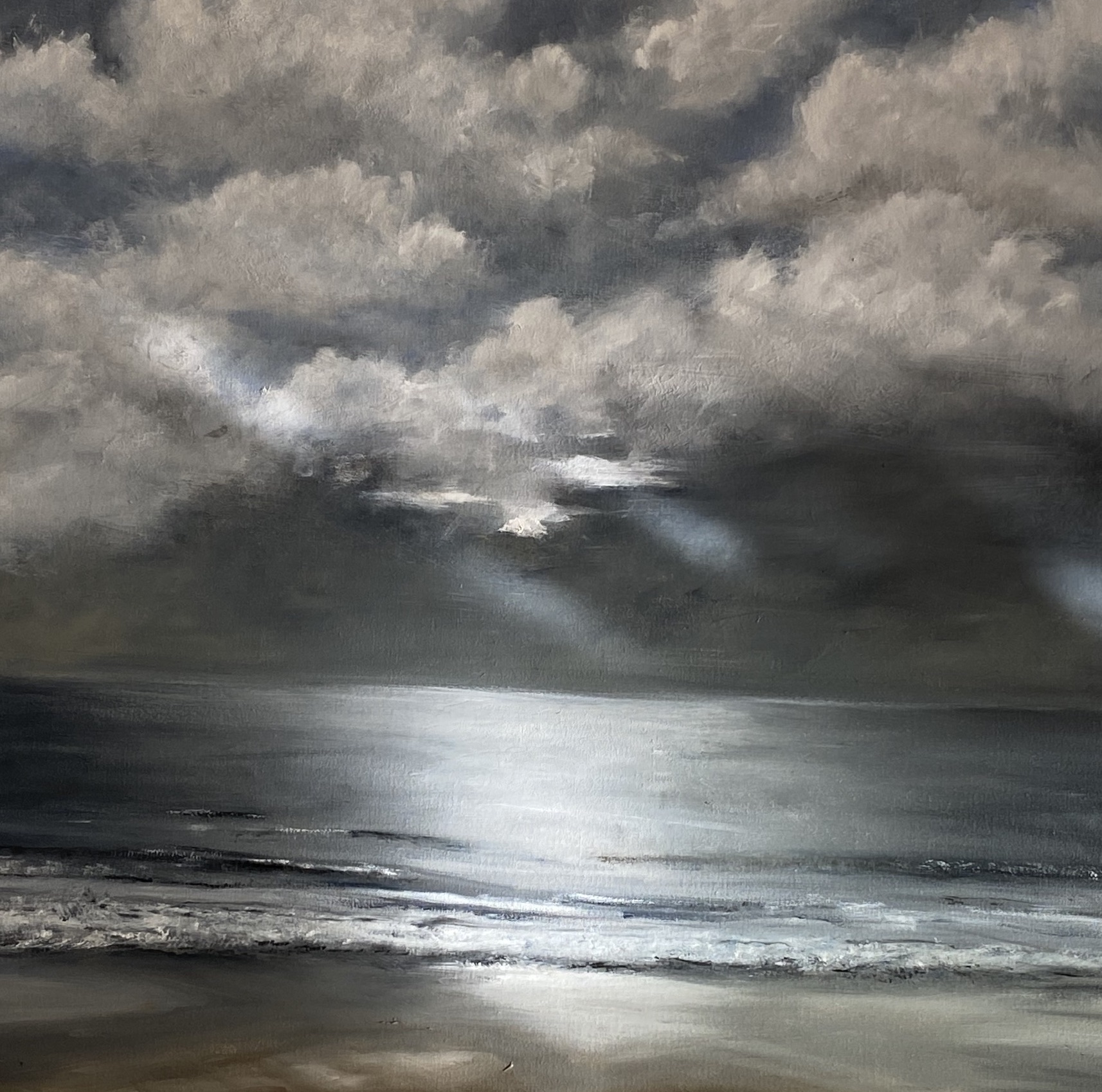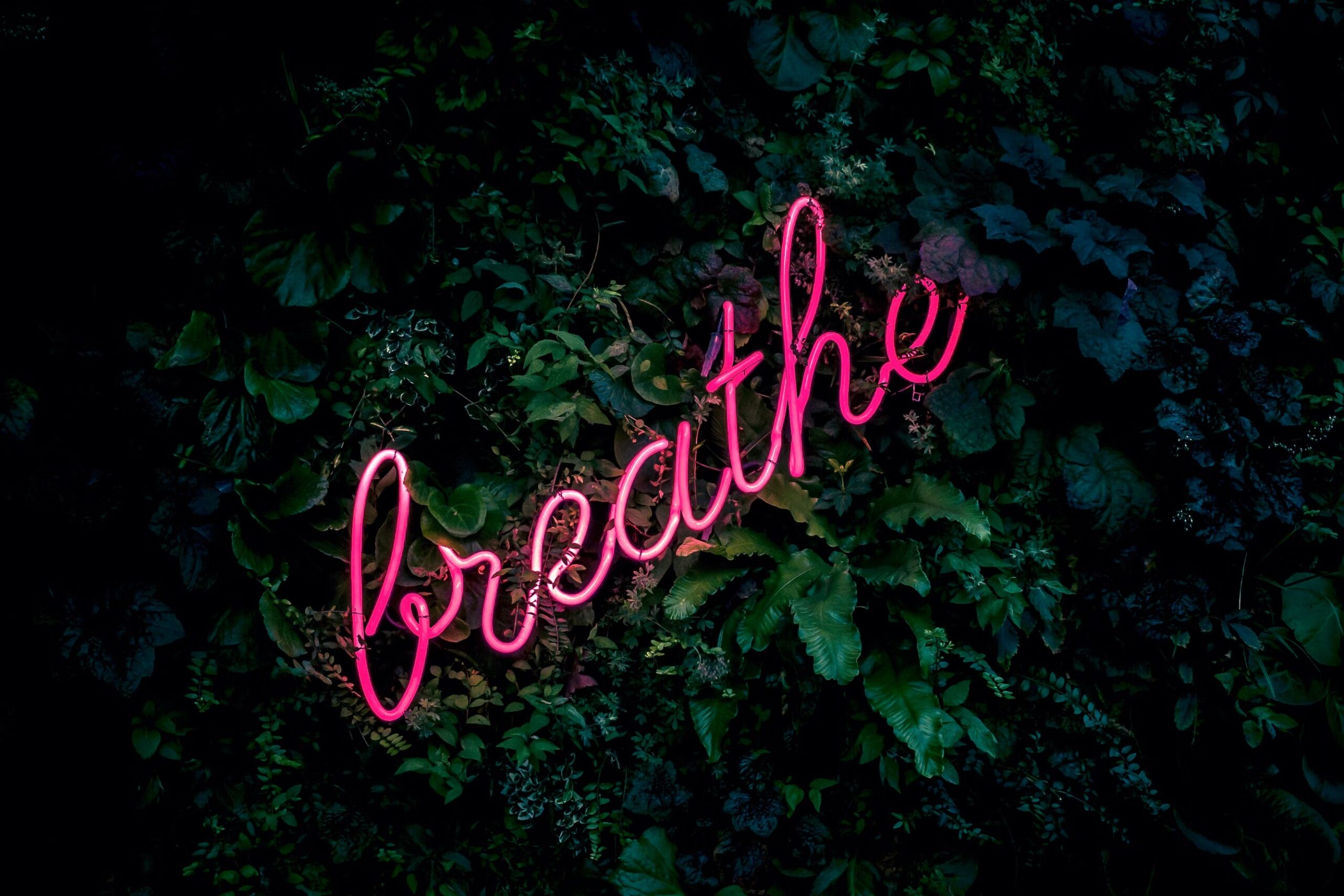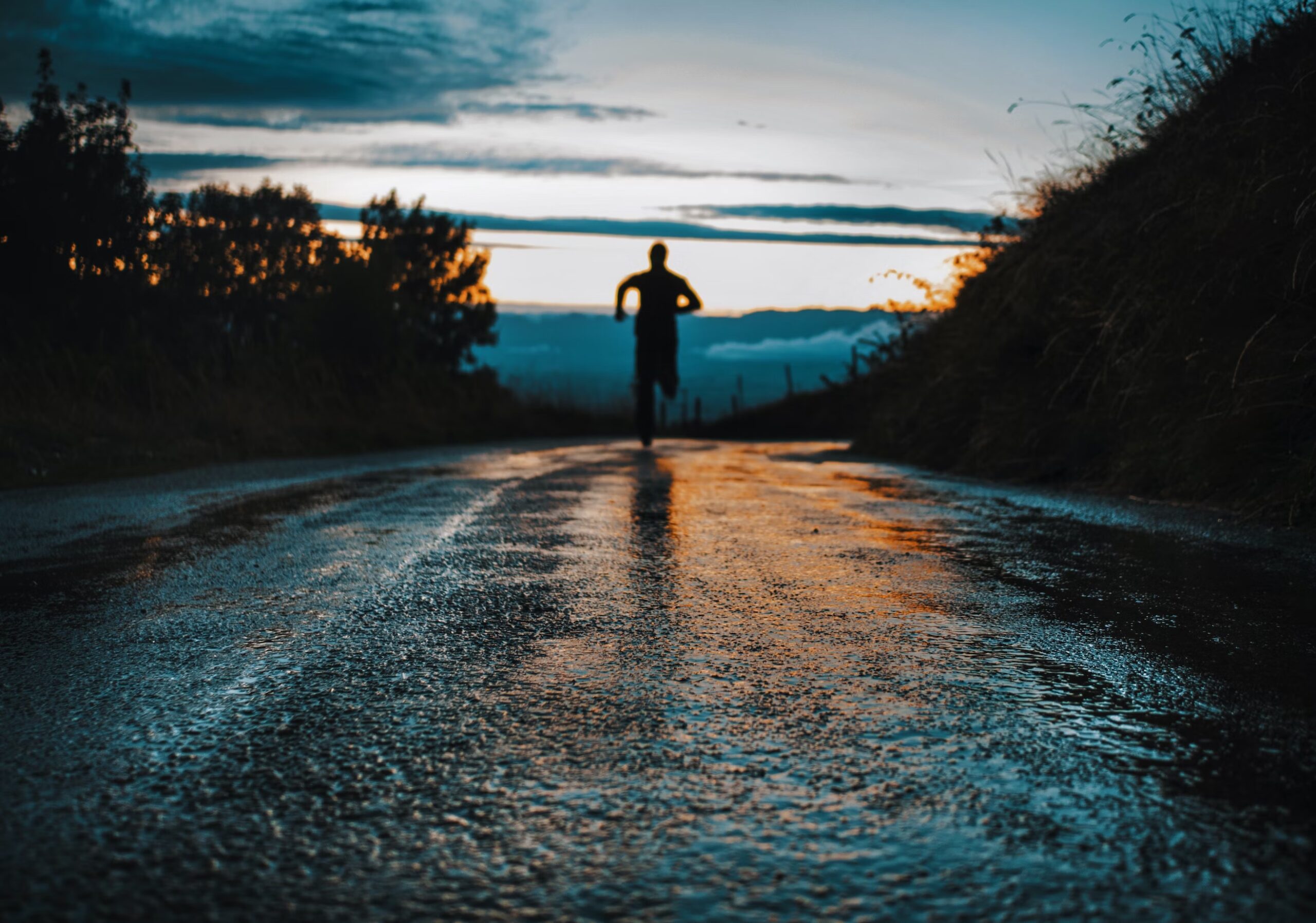Visual Art: John H


By Dede H.
What’s cooking Cookie?
How’s life treating you?
Higher Power you know
Let me take a moment
To reflect on where I’m at
I have a headache
A few aches and pains
Take away all that
Breathe in breathe out
Higher Power you remain
Nothing more to be said
Breathe in breathe out
You are the breather
You’re air in my lungs
I will look up now
Never down

By: Christine R.
Our book describes the alcoholic personality as being akin to Dr. Jekyll and Mister Hyde. Two personalities in one body. Boy did I relate.
More than most people, the alcoholic leads a double life. He is very much the actor. To the outer world he presents his stage character, the one he likes his fellows to see. He wants to enjoy a certain reputation but knows in his heart he does not deserve it. BB p. 73
My Mister Hyde I call the Thirsty Girl. An inner saboteur who’s always thirsty for booze, in one form or another. Anything to relieve that inner compulsion or craving. One woman calls her dark side, “that Vile Bitch Upstairs.” Whatever you call it, the voice was alive and well yesterday.
While at the store, passing a seductive pyramid of Mumm’s Pink Champagne, the Thirsty Girl declared, “Girlfriend – That sure looks good!” Within a twinkling, after years of sobriety, I could taste the bubbly-pinky-sweet stuff. Hadn’t tasted pink champagne in years. Yet, there it was, “How ‘bout a drink?” Along with the voice came the visual measuring up of the size of the bottle to guestimate how much I could drink in a day. “One bottle?” “Two?”
I was scared. I think I still am. It takes a habit to break a habit. Kudos to sponsors who train sponsees to call them, to recalibrate the hand to mouth coordination from raising a glass to the mouth to raising the phone instead.
Picked up the phone and within seconds discovered a women’s meeting right around the corner, starting up soon. Upon arrival, I took a front seat and began to settle down.
How often have we heard someone say, “The reading today was exactly what I needed to hear.” So of course, the reading came from Living Sober. Living Sober, a title that says what it does. How to live sober, one day at a time, without a bottle. Real simple but not always easy.
And what were we reading? Staying Away From The First Drink. Another title to say it all. Stay away from that first drink.
If you don’t take that first drink, you can’t get drunk. One is too many and twenty are not enough.
The chapter goes on to reveal:
Instead of trying to figure out how many we could handle, we remember,“Just don’t pick up that first drink.” It is so much simpler. The habit of thinking this way has helped hundreds of thousands stay sober for years.
Certainly helped me stay sober yesterday. The meeting threw a lifeline and a keen reminder to help keep a body sober. Not with the view of staying away forever. Forever is too vast. Keep it simple. Avoid the first drink.
Keeping an addictive compulsion down is like keeping a beach ball down under water. No matter how we strive, the ball keeps popping up. Our alcoholism requires a tremendous amount of time, energy, and determination to keep the ball down, to keep our addiction under control and in check. Really freeing to surrender and allow the ball to burble up so we can move on.
Time is not a tool. All the years away from a drink and still the balloon shows up and coos,“Think me! I’m real.” “No one will know.” “I can do this.” That’s from the Thirsty Girl.
If you’re in an aisle of life where a drink looks like a good idea, as it did for me, move to the other side of the store. Get some mental health food as you recall, “One drink is too many and 100 not enough.’”

By John W
As his head hit the pillow this night
Knowing this day he had fought the good fight,
He paused to reflect the discipline it required
To see the triggers and not by them get mired.
On Awakening he turned to his daily ritual
So different from the Before and now habitual.
His requests for help with his day’s tasks unspoken,
Their hearing, not granting, witnessed by another annual token.
Each day he found his token, just by the door.
Each day he was sober, now, each day since Before.
No small price to pay on The Toll Road called life,
The fare for his passage, a sober reply to joy or strife.
* * * * *

We are all born with a Conscience and an Ego. We all have Instincts. As human beings, we are also born with the use of Practical Reasoning, and that separates us from the animals, who, for the most part, live by their instincts. The degree to which these assets and liabilities affect our behaviors differs in all of us.
“Yet these instincts, so necessary for our existence, often far exceed their proper function.” (12&12 Step 4)
Most normal people make mistakes in their lives and that is normal since no one is perfect. Most alcoholics, however, take their life to the brink of destruction before they become desperate enough to surrender and enter the program of Alcoholics Anonymous. Most alcoholics struggle with emotional difficulties that far exceed the normal range. Some of these troubles can be rectified simply by acknowledging they exist and being willing to change our motives and behavioral habits.
Unfortunately, a certain percentage of our fellowship have Deeper Rooted Emotional Problems that are permanent and cannot be cured simply by practicing A.A. principles alone. They are often masked by the use of alcohol. When a person stops drinking and starts dealing with their behavioral problems, these things rise to the surface in the form of: O.C.D, A.D.D, Bipolar Disorder, P.T.S.D, and many others that can only be subdued by the use of medications. In some cases, these dull the mind of the patient to the extent that they resist taking the medication and would rather live with the symptoms. Not knowing this, we sometimes misunderstand the people stricken by these deeper-rooted mental conditions and believe, by their sharing, that they are Resistant, Arrogant or Egotistical etc. when displaying behaviors that the average person is not afflicted with. These conditions are not always at the extreme levels. Each of us, as alcoholics, have a degree of behavioral problems outside of the normal range, else why would we need to attend A.A. meetings?
Let us consider the normal range to be 5 degrees on either side of the centerline. The extremes of the abnormal behavioral problems extend out to 50% on either side of the centerline. Let us take Fear as an example. Some people are so fearful they are afraid to leave their home, while others are so fearless they may dive off a cliff into a pool of water. These are extremes, and we all fall somewhere in between. Those of us who are fortunate enough not to be afflicted by those pre-mentioned mental disorders are blessed in the sense that, practicing the principles of Alcoholics Anonymous, can bring us back toward the centerline and we can lead a somewhat normal life.
For those ill-fated ones afflicted by those conditions, they can stay sober. But the behaviors are still apparent to us and, unless we can recognize and replace the habit of judging them by their outward behavior, we are still outside the normal range ourselves. When we replace the habit of being judgmental with the habits of Compassion and Empathy, we are somewhat closer to the centerline. We can change all those alcoholic behaviors when we recognize them, simply by looking deeper into our motives for our actions pointed out in the A.A, program. Steps Six and Seven begin this process of recognizing our defects of character, based on our thinking, and changing the shortcomings or actions that result from those thoughts.
“There are those, too, who suffer from grave emotional and mental disorders but many of them do recover if they have the capacity to be honest.” (BB pg. 58)
My question is, do we have the capacity to be accepting when we recognize that some of us have these uncontrollable deeper-rooted issues and that we cannot compare them to ourselves and be judgmental about these difficulties? Love, Compassion and Empathy are the centerline positions in these cases. They need our understanding.
|
||||||||||||||||
|
What happened to the fun part?
~ Jim F


I was born in San Francisco a month after the first printing of the first edition of the Big Book was made back East. Thirty-seven years later when A.A. was 41 years old, I crash-landed into my first A.A. meeting in Washington, D.C. and took my last drink the next day. I have been sober over half my life and half A.A.’s life.
Practicing the guidance of the statement on page 85 of the Big Book, “We are not cured of alcoholism. What we really have is a daily reprieve contingent on the maintenance of our spiritual condition,” has evolved for me over the years. Today it is for me, ‘We have a daily reprieve based on the maintenance and continued growth of our spiritual condition through relaxed, repetitive practice of spiritual principles in all our affairs.”
How do I do that?
I can best summarize it at this time of my life and sobriety in four words from A.A. literature: Choice, Desire, Enjoy, and Practice.
Choice
Choice is the first benefit of sobriety that came to me in my first week in A.A. I knew that with A.A. I had the choice not to drink the poison that is alcohol. The first place in A.A. literature that I encountered choice is on page 12 of the Big Book, where Ebbie Thacher says to his old drinking buddy Bill Wilson who was in his last drunk, “Why don’t you choose your own conception of God?”
I later saw that the entire A.A. program gives me choice, the Twelve Steps, Twelve Traditions, Twelve Concepts, and age-old wisdom throughout A.A. literature, especially the Serenity Prayer authored by Roman General and Emperor Marcus Aurelius in his private ‘Meditations’.
Desire
“The only requirement for membership is a desire to stop drinking,” the Third Tradition states. When I pursued desire with alcohol in me, I got into a whole lot of trouble. Without alcohol and with the guardrails of the entire A.A. program, desire becomes a call from Greater Power to wake up, show up, be present, and listen to others on how they are staying sober. I can learn from anybody inside and outside of the program, those who stay sober and those who don’t, because the Third Tradition is A.A.’s great statement of equality. As A.A. ‘s brochure from GSO in New York on Sponsorship says, “In A.A. sponsor and sponsored meet as equals, just as Bill and Bob did.”
Enjoy
Page 132 of the Big Book states, “We absolutely insist on enjoying life.” Page 83 promises, “We are going to know a new freedom and a new happiness.
Practice
Practice is the final action word in the Twelve Steps. Everything of value that has come to me in life has come from relaxed, repetitive practice of positive attitude, action and habits. Today, I seek to practice on a daily basis the spiritual principles underlying the Twelve Steps, Traditions, Concepts, and beyond. My list has grown to 25 principles to practice. The first three are: humility, equality, and community. The last three are: courage, hope, and gratitude.
I didn’t limit my drinking and I don’t limit my sobriety. I continue to re-read with others all five A.A. books that Bill Wilson wrote and published in his 36 years of sobriety: Alcoholics Anonymous © 1939, The Twelve Steps and Twelve Traditions © 1952, Alcoholics Anonymous Comes of Age © 1957, Twelve Concepts for World Service © 1962, As Bill Sees It © 1967, as well as the sixth book of his writings that A.A. published posthumously, The Language of the Heart © 1988.
I use all of the program and beyond to stay sober, just as Bill Wilson did: “In no circumstances should we feel that Alcoholics Anonymous is the know-all and do-all of alcoholism… We are forgetting that to religion and to the medical arts we owe our very existence…Certainly we drunks did put AA together, but all of its basic components were supplied by others. Here, especially, our maxim should be, “Let’s be friendly with our friends.” Pages 332 and 333 of The Language of the Heart © 1988 from an article in The Grapevine in July 1965 that Bill Wilson wrote on A.A.’s 30 th anniversary.
That for me is practicing humility, which Bill called ‘perspective’ and which I like to describe for myself in three sentences: “I don’t know. Others might. I need to listen.”

For years I considered the Big Book statement: “Happy, joyous and free” as a bit redundant, for after all, are not happiness and joy the same? (p. 133) However, years later I found that HAPPINESS and JOY are two completely two different things:
HAPPINESS is a human experience. It disappears when we are sad or depressed. But JOY is a God experience that may take place even when we are sad or depressed.
I have experienced said unexplained joy while feeling deeply depressed in a tent while camping in Sult Ste. Marie, Canada. I had recently been separated from my ex-wife and was feeling enormous depression. We camped in that same tent in the Grand Canyon during our honeymoon previously. In the middle of the night, I became unexplainably full of energy, and everything seemed to wax extremely vivid and bright. I was full of Joy. This lasted throughout the night.
I believe Bill Wilson was experiencing great Joy—not ordinary happiness—after he went through his vital spiritual experience on page 14 of the Big Book: Doctor Silkworth told him: “Something has happened to you I don’t understand. But you had better hang on to Anything is better than the way you were.” I believe Bill’s resultant Joy prompted him to immediately go out and start helping alcoholics. So, I believe God’s Joy can be ongoing!
Then there is Fitz Mayo who had such an ongoing vital spiritual experience that: “He couldn’t drink even if he would.” (P. 57, Big Book) There must have been great Joy in that!
Again, Ebby Thacher (Bill’s sponsor), who was not a spiritual person prayed to God: “as never before” and was stuck sober for two years and seven months. Again, great Joy must have been present. (EBBY The Man Who Sponsored Bill W., by Mel B. – p. 58) Ebby died in 1966, two years sober.
I believe the blessing of spiritual Joy will come to me when God decides to send it—I cannot just wish for it. However, I believe my chances are all for the better if I try to maintain a fit spiritual condition by living the Twelve Steps.

Blessed Lover of my Soul
You have given me all the Gifts
I have only to truly know
That you are always with me
I need never doubt You
Gratitude in Loving others says
I share You with my fellows
There’s no need to hide today
Never ever will I fear life alone
Everyone has You inside them too
We walk this happy path together
It’s our joyful destiny! Please!
Whenever anyone anytime is here
See to it that we have space
To share our wants and needs
We carry God’s Love inside us
Happy to be human beings too
Love’s longing for this experience
Has brought us together do tell
We each rejoice in our little selves